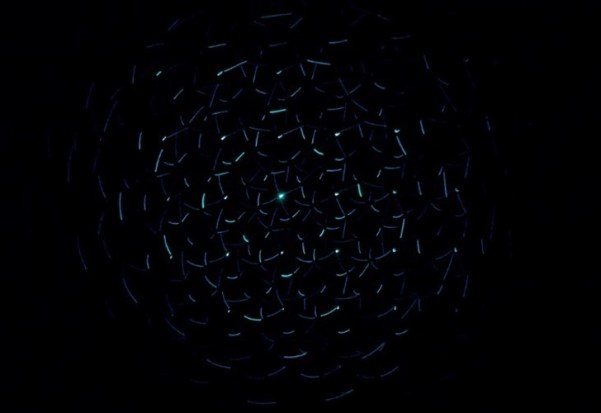During their ugliest, most severe, and worst stage of their addiction, the start of their recovery is invisible to everyone else. The nascent recovery within them (perhaps nothing more than a simple moment of clarity) seems to have its own voice and is already speaking to them. Later, that suffering person speaks to others about their recovery. But those others say to themselves and to each other, “They’re not in recovery. Not yet. And they sure aren’t in recovery just because they say they are.” In this way, being discounted improperly, they are a Recovery Orphan.
What might some consequences be? Perhaps the one still suffering who has recovery inside picks up a hint of that denigration (almost like they can smell the judgment in the spaces between the words they hear). And then that person retreats to stay in the shadows. And perhaps they are lost to an early death. Or simply lose years of their life existing inside a tornado of a continued pattern of reckless use.
At their most mature-looking and best height of their false, inauthentic, and carefully manufactured persona (that is a mere replica of full recovery and might be taking place during years or decades of continuous abstinence) their addiction is invisible to everyone else. They are not sharing vulnerably. They are not giving or receiving from their place of need and vulnerability. But others might say to themselves and to each other, “They’re in really good, mature, full recovery.” In this way, being affirmed improperly, they are a Recovery Orphan.

What might some consequences be? Perhaps years into this dynamic they violate their abstinence with 4 fingers of fine scotch and then end their own life with a firearm. Or perhaps they merely lose years of their life by living inside a hall of mirrors, and keeping up appearances. But all the while, by all appearances, they are seemingly in the best functioning of their life, connected and re-connected, while focusing on service and giving back.
Recovery Orphans
In the Stages of Change model, the first stage is called “pre-contemplation.” This is the phase of active addiction illness when the person is seemingly immune to the facts of reality and apparently are not motivated for positive change by experiencing any additional pain or negative consequences of continuing to use. They aren’t even on the fence. They aren’t even contemplating change.
But what comes before pre-contemplation? To me, the answer is “Closure”. And the kind of process that would produce the level of closure we find in active, full addiction illness tells us something. It tells us that there was a person inside who lived through the experience of their own slow process of closure. To me, that person is still inside there. And further, that process of closure might even plant or hold seeds of recovery. How so? The memories or voice of a real-self, or the ecology that was lived in before the process of closure gained momentum, and the lived experience of the process of their own slow closure, might be a form of recovery capital. That is to say, those memories might be a point of contrast still inside the person, even at their eventual worst.
Have we ever met someone in the years during which they were experiencing slow and progressive closure? Should addiction professionals advise such a person that they should do more research and continue to use? Does that person deserve their seeming self-imposed fate as a recovery orphan?

And what about closure that takes place later on?
In the Stages of Change model, the last stage is “maintenance”. This is the phase of addiction recovery where sustaining the positive determination and action that produced recovery and initially sustained it becomes internalized and takes less effort to keep.
But what comes after maintenance? Can recovery become false? Can closure creep in? Can someone that far along begin to develop a type of unhealthy closure? And if so, should such a person be turned over to their self-assigned fate as a recovery orphan?
Recovery Orphans
Notes in reaction to “What Is Metaphysics”?
- Each thing contains everything.
Taken as a whole, our field contains at least both addiction and recovery.
A hologram is a piece extracted from the whole, but that still contains the whole. To attempt to pull out a part (either addiction or recovery) from the whole results in extracting a hologram (the full thing), not a mere “part”. Although what is pulled out is pulled out as separate, it contains both addiction and recovery.
Even more strange, recovery and addiction are mutually compatible as occurring together, because they are different aspects of one whole. Each is a mere “part”. But in this case of our field specifically, each mere piece contains the entirety, not just the part, or a part – but each piece contains both the parts and the whole.
So, consider the statement “I’m in recovery when I say I’m in recovery.” First, I will handle that statement as true, and then I will handle that statement as false. And even these evaluations (true, false) are partial reflections of a whole.
So, let’s examine the statement, “I’m in recovery when I say I’m in recovery”.
- It is true by principle because no one has access to the essence of the person’s person who is making the statement, or to their phenomenological experience, in order to claim otherwise.
(On the flip side, there are components of self we don’t have access to within and concerning ourselves. That is to say, seeing one’s self accurately (to say nothing of fully) is an undoable puzzle.
- It is true by example of the moment of clarity that happens to occur at a moment, such as the height of the illness.
What if a person at the height of their active illness has a moment of clarity and says so, and affirms their recovery in that moment?
- It is true by exploration of what comes before the moment of clarity.
What was the pre-clarity content and process? Worded differently, what was the recovery priming of the precovery phase? Why call that location, time, and material “precovery?” Isn’t splitting the precovery portion off from recovery per-se somewhat artificial?

And so let’s examine the statement “I’m in recovery when I say I’m in recovery” again.
- It is false by the same principle because the totality of the whole is still present.
That is to say, the addiction illness ego state in its most distorted form might be making the truth claim “I’m in recovery” when the claim is false. And it might be false even in their own estimation. (Ironically, even if it were false in their own estimation, on the grounds of point # 1. above, and out of respect for the person and that principle, we would still perhaps not disqualify the claim).
- It is false by example of the return to symptoms that comes before the return to drinking.
What (prodromal) signs and symptoms precede a return to full active illness – including return to a dynamic or pattern of old thoughts, feelings, attitudes, behaviors, personality function, and perhaps drinking or certain levels of drinking? (Read correctly, that question neither presupposes nor precludes sustained abstinence.)
- It is false by exploration of the process of a long, slow return to a lessening or lack of clarity before the moment of returning to drinking.
How far back in time do we need to look to find unstable sobriety, unstable psychosocial function, mere stasis, other problem-related prodromal material, or healthier recovery function?
2. The objective/subjective split error. Quantification (numeric data, etc.) is merely a representation of a thing through objective methods. By contrast, qualitative experience, and transfer of that experience through some means, is a source of information. (Subjective aspects of individual personal consciousness are called “qualia”).

Is a piece of music a composer creates the sheet music (an objective representation), or what the audience hears (a subjective experience)? Neither. The composed piece is in the mind of the composer and is accessible to no one. So here is a question: which of the two (objective or subjective) are the thing? And here is another question: if one assembles the objective and the subjective into one whole, is that the thing? No. It is not.
3. The nothing. “The nothing” can be important or helpful in a several ways. One way to help find a thing, identify a thing, notice its properties, or define a thing is to start instead with nothing – to start with what is beyond or past the edge of the thing, and therefore the space or “nothing” beyond the thing.

- What is “no addiction?” Does “no addiction” ever really come about during “recovery”? What is “no recovery?” Does “no recovery” really always persist during active addiction? Does “no recovery” always persist as-is before a moment of clarity? Is that even a thing? Thus, have we perhaps found recovery orphans?
- What is “no substance use disorder?” Here are some examples of what are called “diagnostic orphans”:
- During the many years we used the fourth edition of the diagnostic and statistical manual of mental disorders (DSM-IV) a “Substance Dependence” diagnosis required that a person fit at least 3 of the 7 criteria for substance dependence. Sometimes we would determine a person only met 2, or only 1. Those were “diagnostic orphans”.
- Another example is that sometimes we would determine that a person was worse off than the “substance abuse” criteria (above that threshold), but did not meet any of the worse “dependence” criteria (below that threshold). They were in a space between those two categories, belonging to neither. Those were also “diagnostic orphans”.
- Now we use the fifth edition, known as the DSM-5. Currently, to have a substance use disorder, a person must have 2 or more of the 11 criteria. But what if they have only 1? That person is a “diagnostic orphan”.
4. The person of the researcher. The questioner is placed in the question. Inside the question.
Recovery Orphans
Notes in Reaction to “The Myth of Matter”.
- When one views the ocean from 30,000 feet above the surface, the ocean appears flat, and the thing looks solid.

2. When viewed from a closer position, one notices waves that often appear in a pattern.

3. If one views the ocean from an even closer position, one notices foam atop the waves, and the presence of broken-off free-floating particles.

4. When the ocean is viewed from a very zoomed-in quantum level, there is more space than material.

References
Heidegger, M. (1927). What Is Metaphysics?
Wright, R. & Davies, P. The Myth of Matter. The Wright Show: MeaningofLife.tv, YouTube.
Suggested Reading
Coon, B. (2019). Addiction and the Stages of Healing. recoveryreview.blog/category/stages-of-healing
James L.(2016). Carl Jung and Alcoholics Anonymous: is a Theistic Psychopathology Feasible? Acta Psychopathol. 2:1.
Ortega y’ Gassett, J. (1927). Revolt of the Masses. W. W. Norton.
Rubianes, M, Muñoz, F, Casado, P, et al. (2020). Am I the Same Person Across My Life Span? An event‐related brain potentials study of the temporal perspective in self identity. Psychophysiology. 58:313692. https://doi.org/10.1111/psyp.13692
Thomas, C. (2013). Ten Lessons in Theory: An Introduction to Theoretical Writing. Bloomsbury: NY.
White, W. (2001). “The Rhetoric of Recovery Advocacy: An Essay on the Power of Language.” williamwhitepapers.com
White, W. (2013). Precovery: And Then A Miracle Occurred. williamwhitepapers.com
Previous Material (in order of release)
Brown, A. (2021). Reflections on Current Debates Regarding Recovery Definitions. recoveryreview.blog
Coon, B. (2021). Continuing “Very Heavy Drinking” and Also Meeting An Improved Definition of Recovery? recoveryreview.blog
Witkiewitz K, Wilson AD, Pearson MR, Roos CR, Swan JE, Votaw VR, Stein ER, Edwards KA, Tonigan JS, Hallgren KA, Montes KS, Maisto SA, Tucker JA. A Bridge to Nowhere: Resistance to the Possibility of Some Heavy Drinking During Recovery and the Potential Public Health Implications. J Addict Med. 2021 Feb 10. doi: 10.1097/ADM.0000000000000796. Epub ahead of print. PMID: 33577228.
Kelly JF, Bergman BG. A Bridge Too Far: Individuals With Regular and Increasing Very Heavy Alcohol Consumption Cannot be Considered as Maintaining “Recovery” Due to Toxicity and Intoxication-related Risks. J Addict Med. 2020 Oct 14. doi: 10.1097/ADM.0000000000000759. Epub ahead of print. PMID: 33060467.
Witkiewitz K, Wilson AD, Roos CR, Swan JE, Votaw VR, Stein ER, Pearson MR, Edwards KA, Tonigan JS, Hallgren KA, Montes KS, Maisto SA, Tucker JA. Can Individuals With Alcohol Use Disorder Sustain Non-abstinent Recovery? Non-abstinent Outcomes 10 Years After Alcohol Use Disorder Treatment. J Addict Med. 2020 Oct 14. doi: 10.1097/ADM.0000000000000760. Epub ahead of print. PMID: 33060466
Acknowledgement
I would like to thank Joe Najdzion for comments on a pervious version of this writing.
